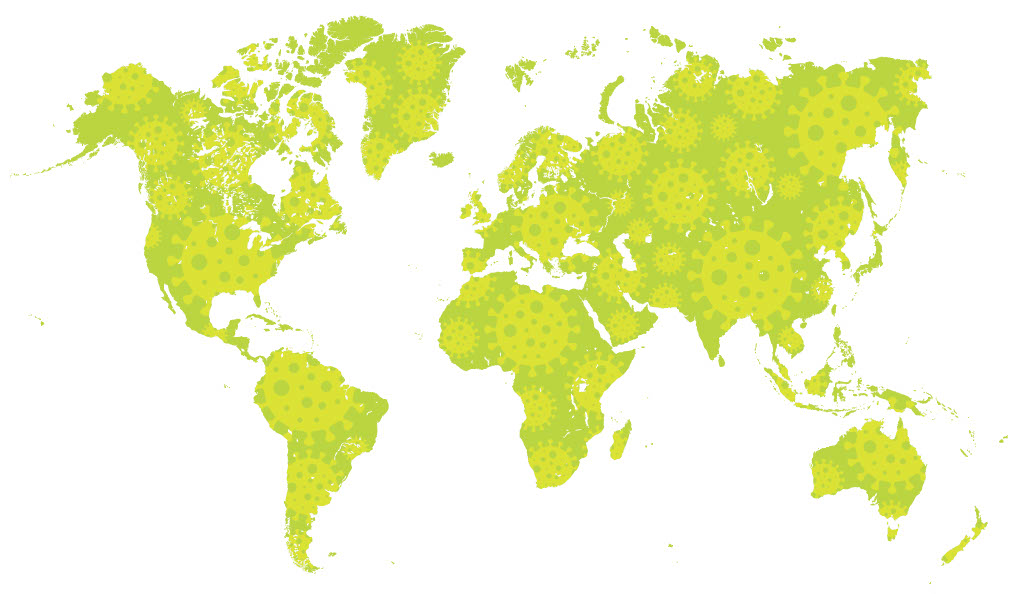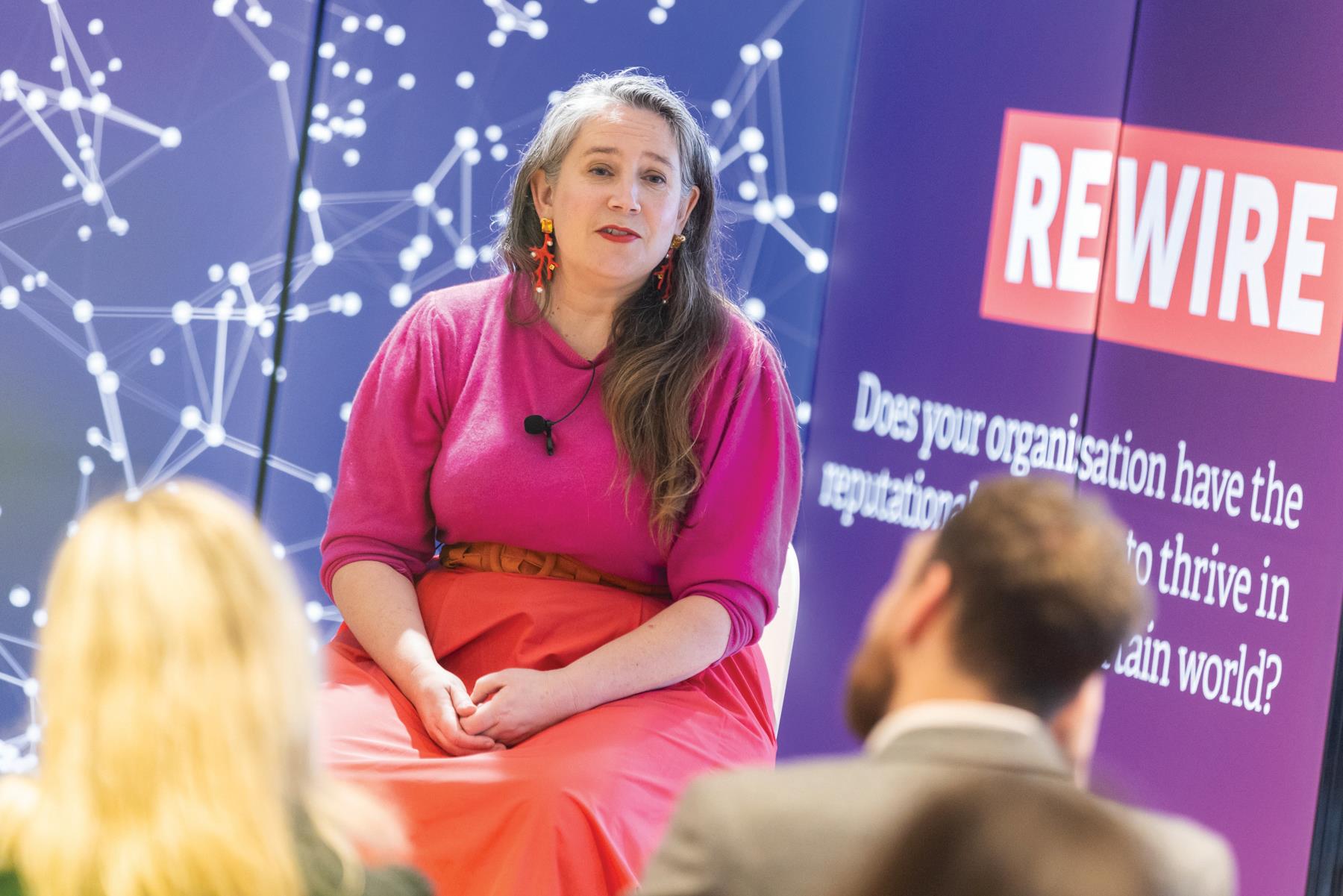With Saudi Arabia having spent over $2 billion on consultants in 2022 alone, these are boom days for businesses eager to get a slice of the dazzling array of mega projects announced since Mohammed bin Salman Al Saud (or MbS as he is known) became Crown Prince and De facto ruler of the nation in 2017.
Make no mistake that what has happened in Saudi since then is nothing short of a historic transformation in the Arab world’s biggest economy – and society. How did it happen and what does it mean for opportunities in the Kingdom?
Remaking a nation
When MbS got the job of effectively running the country he was aged just 32. His father, King Salman bin Abdulaziz Al Saud, knew that change was required in Saudi, which was heavily reliant on oil (c. 40% of GDP, and a fiscal breakeven price of $80-88 per barrel). In 2017, the economy was slowing and suffering from low productivity.
In societal terms, this was a nation with little in the way of public arts or culture, where women were largely excluded from both economy and society. And it was becoming an urgent problem as the population, 60 per cent of which is under 30, was hungry for new opportunities.
MbS quickly proved himself to be a moderniser intent on radically reshaping the kingdom. He set about restricting the powers of the religious police and improving women’s rights; he ended the ban on female drivers in 2018 and weakened the male-guardianship system in 2019. It is astonishing to think that a country that banned cinemas until 2018, and where women and men could not previously mix in a coffee shop, now hosts huge international DJ parties where tens of thousands of young Saudis dance until the early hours.
Much of these changes are encapsulated in Vision 2030, the Saudi program aimed at reducing the economy’s reliance on oil through investment in non-oil sectors including technology and tourism.
Backed by revenues from the $700 billion Public Investment Fund (PIF), $1.25 trillion worth of property and infrastructure projects have been announced under MbS’s watch, according to real estate agency Knight Frank.
Seen in this context, Cristiano Ronaldo’s weekly $4.43 million weekly salary playing for Saudi Pro League team Al Nassr is but a drop in the ocean.
All about Gen Z
It should be no surprise that the ambitious Vision 2030 goals have been enthusiastically welcomed by the nation’s youth. This engaged, educated demographic is driving Riyadh’s transformation into a cosmopolitan global city with a vibrant identity.
The success of these initiatives might partly be attributed to the concerted efforts to send talented students abroad after 2005. By 2013-14, almost 200,000 Saudis were studying abroad. Most of them (87 percent) were fully funded by the King Abdullah Scholarship Programme (KASP). Those young men and women returned to a nation propelling itself to a new era where international influences mesh with local traditions.
For all the mega-developments and money being spent, something genuinely new is happening that feels unique to the region. That probably has a lot to do with the fact that Saudi’s 32-million population is two-thirds local, so they don’t need or want to imitate other cities.
Take a trip to any contemporary art studio or fashionable hangout and you’ll see that young Saudis, though international in their outlook, already have a lot to draw from within their own culture.
All of which is to say that while it’s easy for outsiders – especially western outsiders – to dismiss these many changes as reputation washing, spend any time around young Saudis – especially women – and you’re struck by how much they value the new opportunities that have arisen in recent years.
Open for business
The first thing international businesses thinking of entering the Saudi market should do is study the key areas of Vision 2030. This is the framework for massive investments in infrastructure, technology, renewable energy, tourism, and healthcare. Each of these areas deserves its own article. For now, suffice it to say that the opportunities are all staggering in scale and are all sectors ripe for international collaboration.
However, navigating this landscape isn’t without its challenges. Cultural sensitivity remains paramount. Respecting local customs, attire, and social norms is obviously crucial for building trust and ensuring smooth operations. And this is just the tip of the iceberg in terms of cultural nuances that must be learned by experience. Seeking guidance from experts and local partners is invaluable.
The regulatory landscape, while improving, still requires careful navigation. Understanding complex procedures, legal structures, and potential hurdles is essential for business endeavours. This can be, to put it charitably, an interesting challenge. New entrants have also bemoaned issues with late payments over the years. Again, this is improving, though due diligence, adequate cash reserves, and lots of patience, are all recommended.
It pays to be on the ground, too. A law recently passed requires firms to set up a local base in the kingdom or risk losing out on government contracts. However, companies with foreign operations below SAR1 million ($266,000) can operate without local headquarters. And what ‘headquarters’ actually means is still open to interpretation, as many international businesses with happily established UAE-based regional HQs are trying to gauge.
It should also be noted that Riyadh, the capital, isn’t the only player in town. Jeddah, a port city with a long history of immigration as the gateway to Mecca, has a distinct entrepreneurial spirit, and offers a different business culture to navigate. And then there is NEOM, a vast $500 billion project covering an area the size of Belgium that is a whole world in itself.
People persons
The key takeaway from all this is quite simple. Succeeding in business hinges on relationship building. While 41 percent of the population is comprised of expats, the majority of companies are run and staffed by Saudis, unlike other Gulf countries, so that means understanding what makes them tick. Broadly speaking, Saudis value personal connections, so fostering trust and rapport with local partners is the only ticket to long-term success. Don’t think that the locals aren’t aware of the flood of newbies arriving with dollar signs in their eyes, a flashy PowerPoint presentation selling some product or service, and a return flight to catch.
Local expertise, boots on the ground, and strong networks are vital to bridging cultural gaps and paving the way for success.
And here’s the thing: Saudis are fun! They’re highly educated, international in outlook, but with a culture of welcoming hospitality that is still very much part of their DNA. This is a tech-savvy, globally connected generation representing a vast consumer base of 36 million Saudis and 493 million people in the wider Middle East and North Africa (MENA), more than half of whom are under 30.
If you’re in Riyadh, drop by any coffee shop in The Diplomatic Quarter, which adds a modern twist to classical architecture and is set among lush, tree-lined streets. Here, well-dressed young Saudi men and women pour out of offices and studios at lunchtime to take a break at fashionable coffee shops and art exhibitions. It feels as contemporary and of-the-moment as in any other world leading capital city, but with its own unique character. And it’s a scene that would have been unthinkable even five years ago
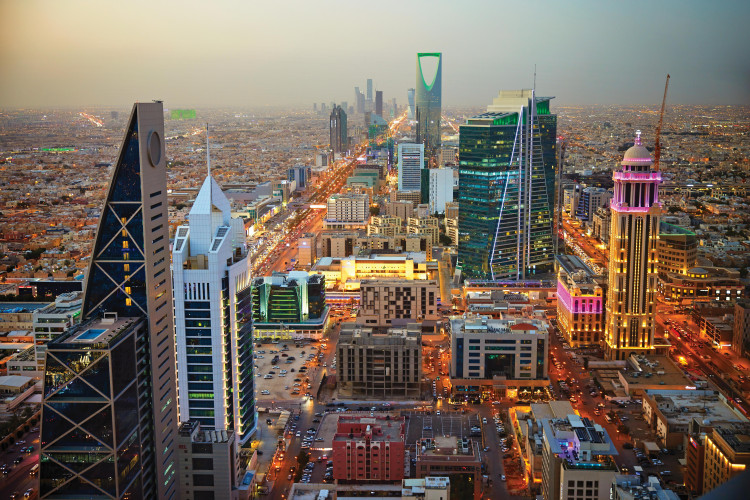
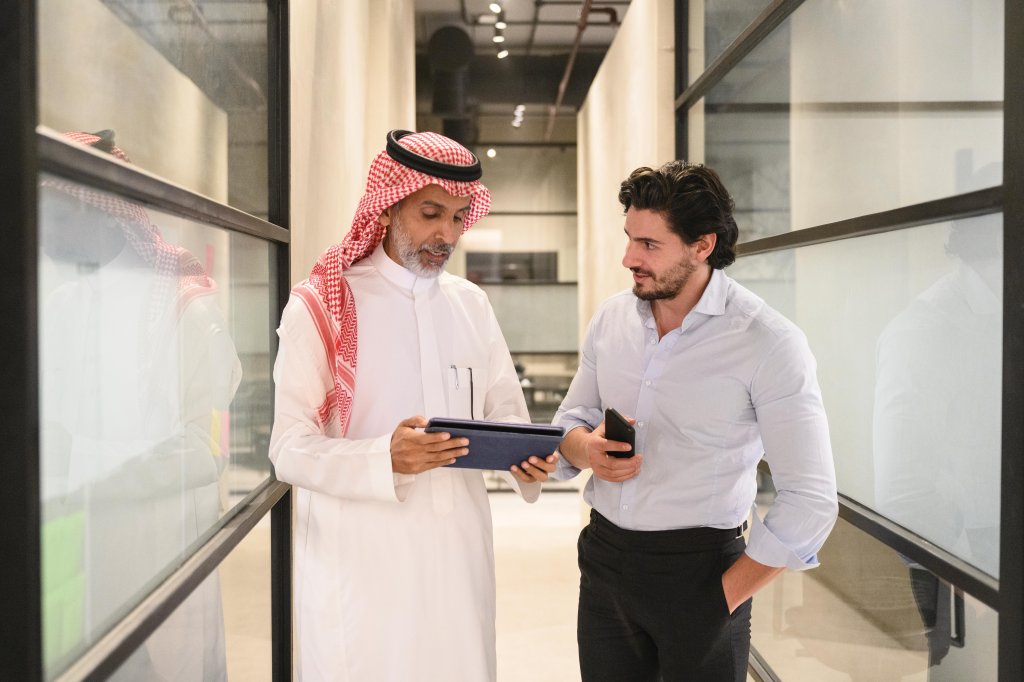
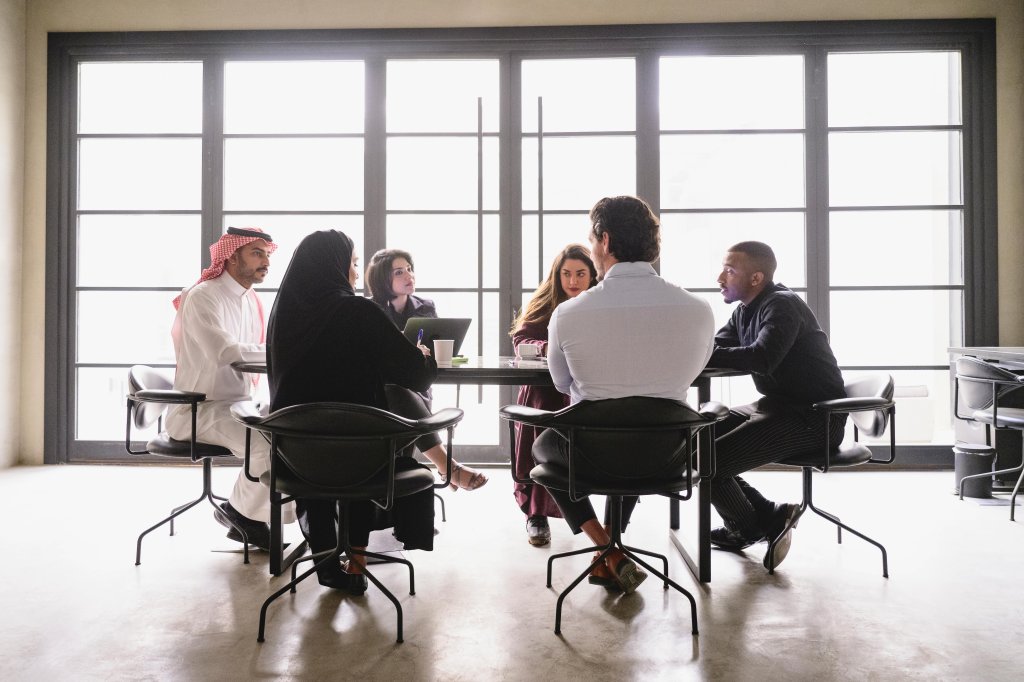
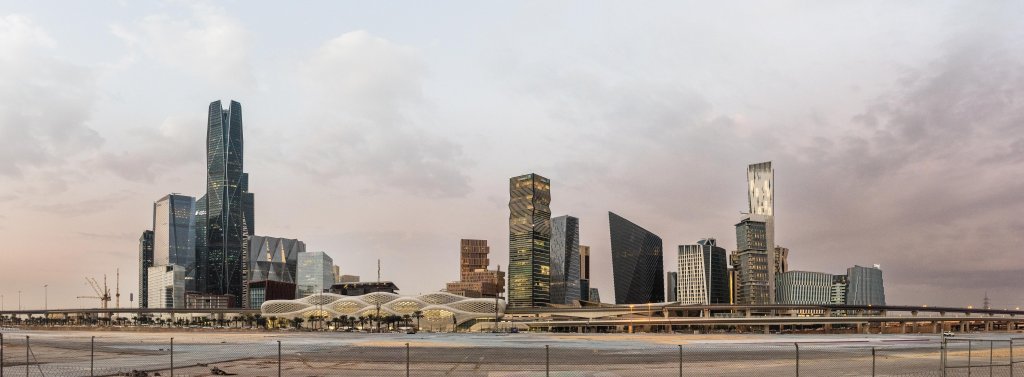
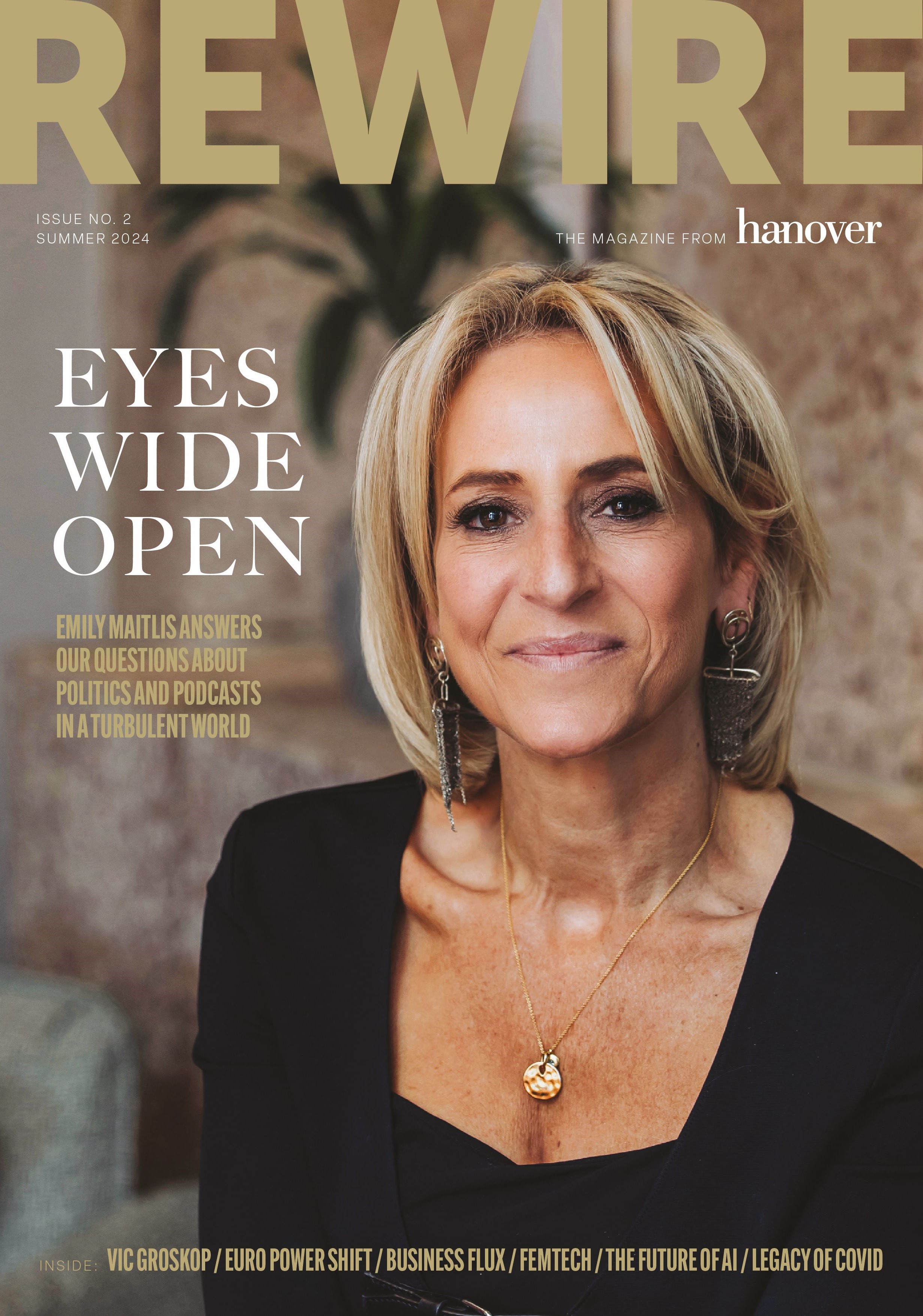
-1721206371.png)
katedarkins-149-1719828715.jpg)
